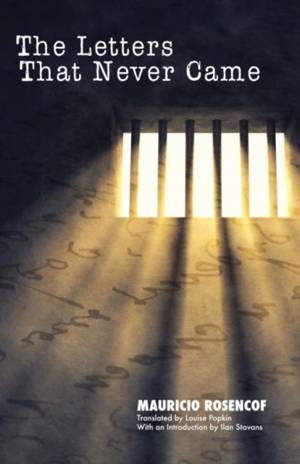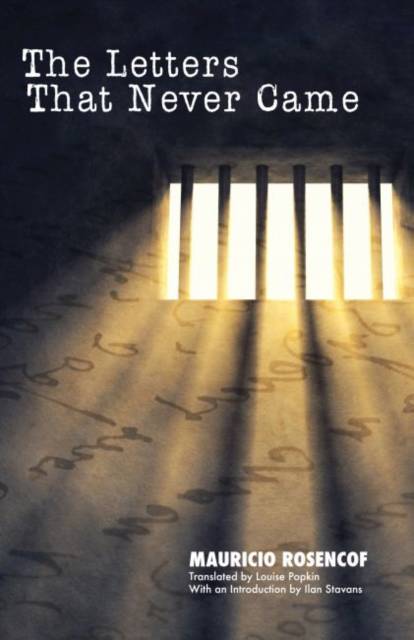
Bedankt voor het vertrouwen het afgelopen jaar! Om jou te bedanken bieden we GRATIS verzending (in België) aan op alles gedurende de hele maand januari.
- Afhalen na 1 uur in een winkel met voorraad
- In januari gratis thuislevering in België
- Ruim aanbod met 7 miljoen producten
Bedankt voor het vertrouwen het afgelopen jaar! Om jou te bedanken bieden we GRATIS verzending (in België) aan op alles gedurende de hele maand januari.
- Afhalen na 1 uur in een winkel met voorraad
- In januari gratis thuislevering in België
- Ruim aanbod met 7 miljoen producten
Zoeken
Omschrijving
Originally published in Spanish in 2000 and first appearing in English in 2004, The Letters that Never Came is an autobiographical novel in three parts that reflects Rosencof's life growing up in 1930s Uruguay as the son of Polish-Jewish immigrants and, later, his twelve-year imprisonment during the military dictatorship his country suffered. Part I is a rich evocation of life in Montevideo in the mid-1930s as seen through the eyes of young Moishe. Every day, Moishe's father waits for the postman, hoping for news of his family, who are prisoners of the Nazis. Interspersed among Moishe's reminiscences are the letters those relatives might have written--but never came. In Part II, Moishe is imprisoned in the dungeons of the military junta that governed Uruguay in the 1970s and 1980s. Tortured and starving, he takes refuge in the world of his imagination, composing another letter that never came--a letter to his father that embodies his own quest for identity. Part III is largely a meditation on the redemptive power of the word, real and imagined. This poignant, humane work, as Uruguayan and Jewish as it is universal, links the cruelty of the Holocaust to that of the Uruguayan military and the resistance of Hitler's victims to his own.
Specificaties
Betrokkenen
- Auteur(s):
- Vertaler(s):
- Uitgeverij:
Inhoud
- Aantal bladzijden:
- 128
- Taal:
- Engels
- Reeks:
Eigenschappen
- Productcode (EAN):
- 9780896728653
- Verschijningsdatum:
- 1/08/2014
- Uitvoering:
- Paperback
- Formaat:
- Trade paperback (VS)
- Afmetingen:
- 157 mm x 227 mm
- Gewicht:
- 172 g

Alleen bij Standaard Boekhandel
+ 60 punten op je klantenkaart van Standaard Boekhandel
Beoordelingen
We publiceren alleen reviews die voldoen aan de voorwaarden voor reviews. Bekijk onze voorwaarden voor reviews.









